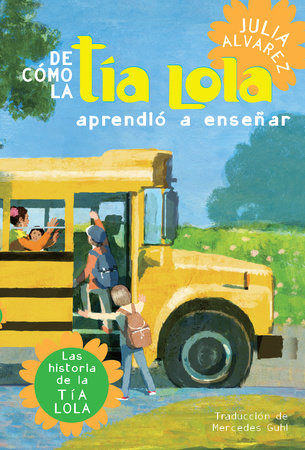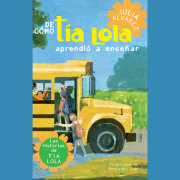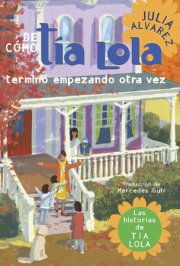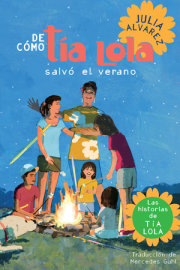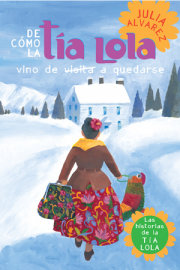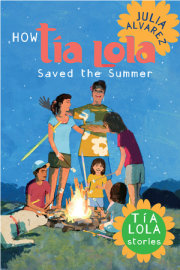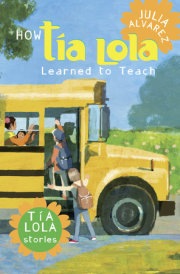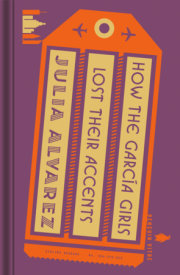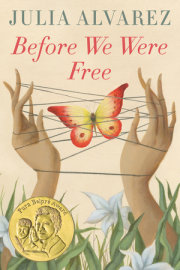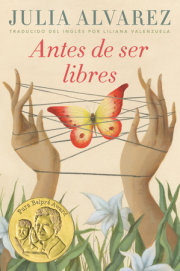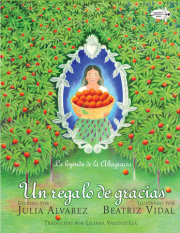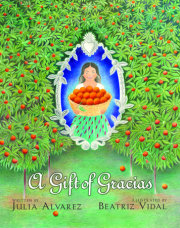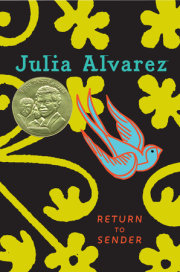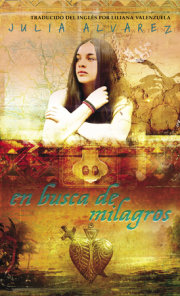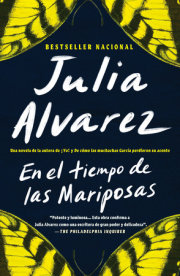Buenas razones cautivan los corazones Good intentions win hearts
"Mami, why is Tia Lola so scared to be a teacher?" Juanita wants to know. Mami is tucking her into bed. Juanita has been pleading for five more minutes so she can read another chapter in her book. But Mami has ruled that Monday through Thursday, lights must be out promptly by eight p.m. Otherwise, Juanita is too tired to pay attention the next day in class.
Mami sighs. "I think Tia Lola doesn't feel confident because she never went past fourth grade."
"I haven't gone past fourth grade either," Juanita reminds her.
"I know, Juanita." Mami smiles fondly at her daughter. "But you're only eight. And Tia Lola, well, she's past fifty. She thinks she's not smart enough to teach the kids at your school."
"But that's ridiculous, Mami!" Juanita says importantly. It feels so grown-up to be able to pronounce something ridiculous. "Tia Lola knows so much. All these stories and songs and sayings. And she knows how to cook and make friends and . . ." Juanita runs out of breath before she has run out of things Tia Lola knows how to do.
"Would you do me a favor, Nita bonita?" Her mami always calls Juanita by her nickname and then adds the Spanish word for "pretty" when she is asking for something that will take extra effort. "Could you tell your tia Lola what you just told me? Tell her you'd love for her to come to your school. That it'll be just like taking care of you and Miguel, except that you'll have a few friends along. . . ."
"Like seventy-four--sorry, seventy-six, counting Nita and me." Miguel is at the door. He must have overheard Mami discussing Mrs. Stevens's invitation.
Mami looks at Miguel in that careful way, trying to figure out what he is feeling. She works at the college, counseling students who feel confused or troubled. Except Miguel isn't confused or troubled. He just thinks that adults should go to work somewhere besides where their kids go to school.
"Do you not want Tia Lola to volunteer at Bridgeport?" Mami asks carefully.
Miguel squirms. He's not sure he wants Tia Lola at his school every single day. But his mother is looking disappointed. "How about if Tia Lola just comes sometimes?" Miguel suggests.
"You know, Miguel Angel Guzman, you might just have hit on a brilliant idea!"
Miguel blinks in disbelief. "I have?"
"He has?" Juanita echoes.
Mami nods, ignoring the sparks flying between brother and sister. "I think it'll be less scary for Tia Lola to start by volunteering once a week, say. She can think of it as just visiting, not teaching. Then, once she gets used to it, she can go more often."
Copyright © 2010 by Julia Alvarez. All rights reserved. No part of this excerpt may be reproduced or reprinted without permission in writing from the publisher.

